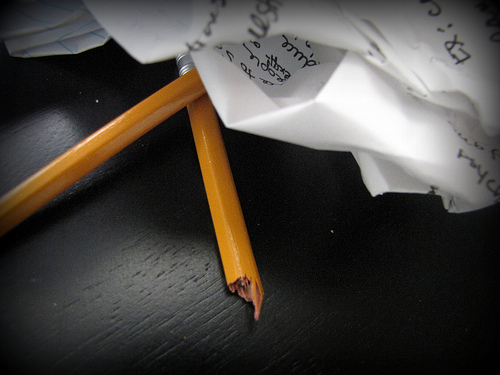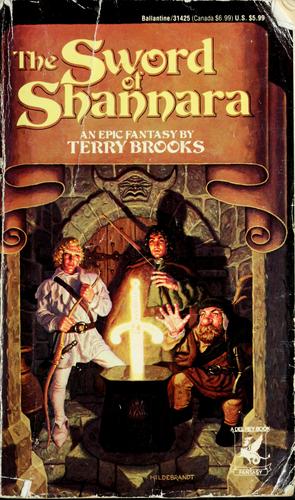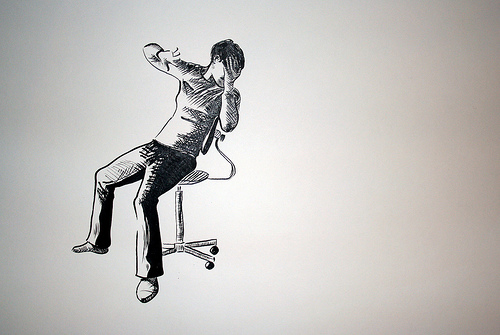 Why do we so often have trouble following through with the way we want to be and act? Unfortunately for me, I face this question all the time. Having made a study of habits and motivation, I have an almost endless supply of tools and tricks to get myself out of a bad mood, figure out what to do next, or get on track-yet even though these tools and tricks have made a huge positive impact in my life, I still manage to be far from perfect. Sometimes I’m late despite knowing exactly how not to be late; sometimes I become disorganized despite having terrific organizational systems at my disposal; and sometimes I fall short on goals or fail to change in the way I’d like to. Why? It seems to come down to three kinds of problems: not knowing, not believing, or not caring.
Why do we so often have trouble following through with the way we want to be and act? Unfortunately for me, I face this question all the time. Having made a study of habits and motivation, I have an almost endless supply of tools and tricks to get myself out of a bad mood, figure out what to do next, or get on track-yet even though these tools and tricks have made a huge positive impact in my life, I still manage to be far from perfect. Sometimes I’m late despite knowing exactly how not to be late; sometimes I become disorganized despite having terrific organizational systems at my disposal; and sometimes I fall short on goals or fail to change in the way I’d like to. Why? It seems to come down to three kinds of problems: not knowing, not believing, or not caring.
Here’s an example: recently I’ve been doing some reading that brings me to believe that the advice we’ve been given for decades about how to fend off heart attacks and strokes and all of that is completely wrong (see my recent article “Wait–Eating Lots of Fat Is GOOD for Your Heart?“). Once I’ve decided that what I’ve read is compelling enough to act on, why wouldn’t I become instantly and completely compliant with all of the new guidelines I’ve learned? After all, it could be literally a matter of life and death.
Don’t know: Before I started reading up on the “fats good, sugars bad” perspective, I had lots of misinformation that was fed to me-and that continues to be fed to me-by mostly well-meaning nutritionists, government officials, and doctors. If I don’t have good information, I can’t very well act on it. It’s very hard to change a habit, for instance, without knowing how habits work (by the way, this site has a number of clear, specific, and carefully researched articles on that subject).
Don’t believe: There are different versions of the belief problem, but one example is plain old doubt. For instance, I might find Dr. Peter Attia’s posts about fat very compelling, but still be nervous to switch to a fat-driven diet because I have a hard time believing that almost all of the information I’d received on the subject in the past was wrong.
Worse, and perhaps even more common, is lack of belief in ourselves. If I don’t believe I can make a change in my life, then all of my efforts in that direction will begin to seem pointless, and it will be very hard to keep myself going.
My belief might be from old information I’m having trouble letting go of, or new and conflicting information, even if it’s from the same old sources or if I know the information I already have is better. Maybe I have friends, family members, coworkers, teachers, colleagues, or role models who don’t believe what I believe, and that’s making sticking to my guns harder.
Don’t care: Perhaps worst of all is when I know what to do and I believe it will make a difference, but I just don’t care at that point. Maybe I’ve had a rough day or a bad night’s sleep and don’t feel as though I can put the effort into one more thing. Maybe I’m concentrating on the things I don’t like about what I’m doing or on things that I can’t or shouldn’t do if I want to pursue that goal instead of on what I can be doing next or on what inspires me. Sometimes I might just not be able to get up any enthusiasm for working on a goal that might never be realized, or that would only have an effect in the distant future. Or it could be that I’m just distracted, preoccupied with other things and not able to spare the attention and interest.
Regardless of which of these problems I have, realizing that I’m faced with a problem in knowledge, belief, or caring makes an instant improvement. Asking myself what I don’t know can lead me to the information I need, and realizing I’m having trouble believing or caring can lead me back to whatever inspired me to believe or care in the first place. When these kinds of obstacles are addressed, then the problem vanishes as if by magic, and suddenly I’m back on track.
Photo by Sharon Morrow.





 I suppose it was 20 years ago or more that I read Brooks’ Sword of Shannara. I found it to be an unrepentant rip-off of Lord of the Rings. I had no writing aspirations at the time, but after reading that disaster, I thought “Well, anyone can write a book.” And then it was a short step to “I can write a book.”
I suppose it was 20 years ago or more that I read Brooks’ Sword of Shannara. I found it to be an unrepentant rip-off of Lord of the Rings. I had no writing aspirations at the time, but after reading that disaster, I thought “Well, anyone can write a book.” And then it was a short step to “I can write a book.” Poe. I started reading him when I was seven, while those moronic learn-to-read first-grade textbooks were being stuffed down my throat. Death from boredom…. I never wanted to learn to read–I wanted to be outside doing things. My dad tried to teach me starting at age four, and I despised it. Then elementary school almost murdered me with dreariness. Squash, crush, stifle. Man, did Poe revive me. The way he used language! By the time I was ten, I’d read all the fiction and poetry he ever wrote. I used to think the word, “poetry,” came from his name. He taught me to use words to give the world hard edges. He started me writing stories because stories gave my strapped-down childhood a shape I could control. I was a child, I wasn’t allowed to do real things, I wasn’t free, so I wrote. I still write to give the world hard edges, to be free. Poe was the first writer to save my life. I honor him.
Poe. I started reading him when I was seven, while those moronic learn-to-read first-grade textbooks were being stuffed down my throat. Death from boredom…. I never wanted to learn to read–I wanted to be outside doing things. My dad tried to teach me starting at age four, and I despised it. Then elementary school almost murdered me with dreariness. Squash, crush, stifle. Man, did Poe revive me. The way he used language! By the time I was ten, I’d read all the fiction and poetry he ever wrote. I used to think the word, “poetry,” came from his name. He taught me to use words to give the world hard edges. He started me writing stories because stories gave my strapped-down childhood a shape I could control. I was a child, I wasn’t allowed to do real things, I wasn’t free, so I wrote. I still write to give the world hard edges, to be free. Poe was the first writer to save my life. I honor him.
 I first tried writing for publication after reading Marion Zimmer Bradley’s Sword & Sorceress series. I commented to my husband that it would be such fun to write for something like that, and he encouraged me to give it a try. S&S was invitation-only by then, and shortly thereafter MZB died and the series ended. By then, though, I’d had a story accepted by The First Line, and I was hooked.
I first tried writing for publication after reading Marion Zimmer Bradley’s Sword & Sorceress series. I commented to my husband that it would be such fun to write for something like that, and he encouraged me to give it a try. S&S was invitation-only by then, and shortly thereafter MZB died and the series ended. By then, though, I’d had a story accepted by The First Line, and I was hooked.
